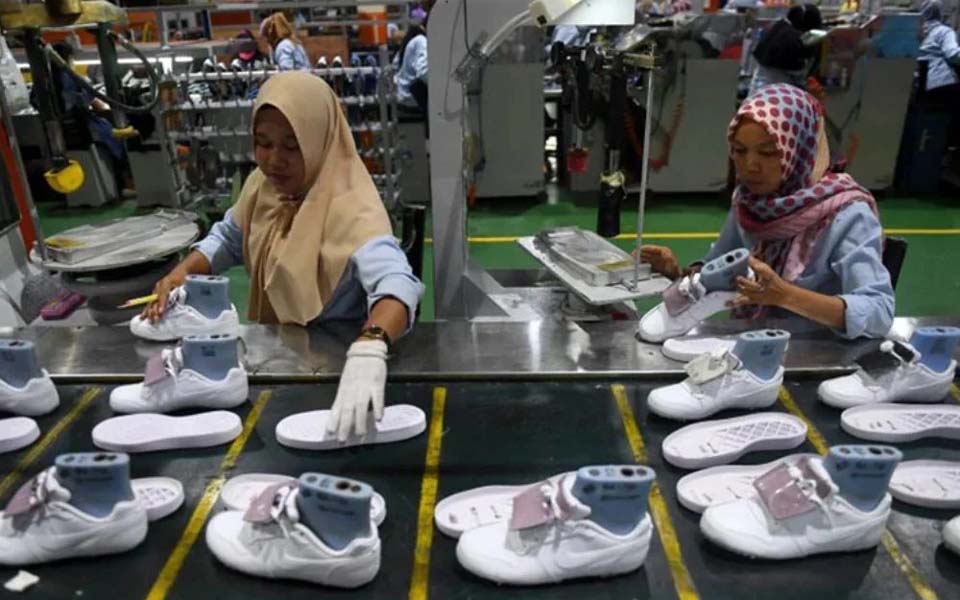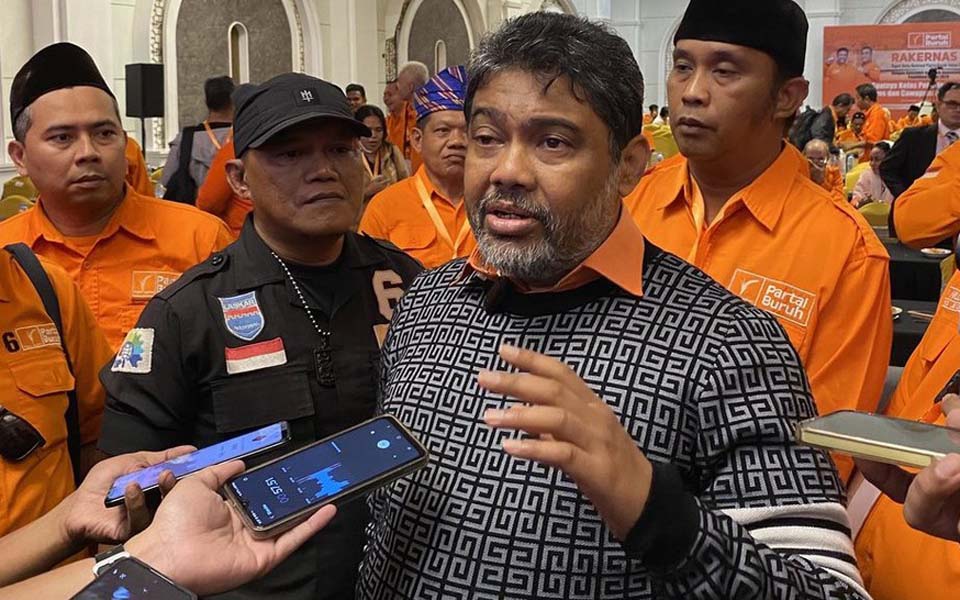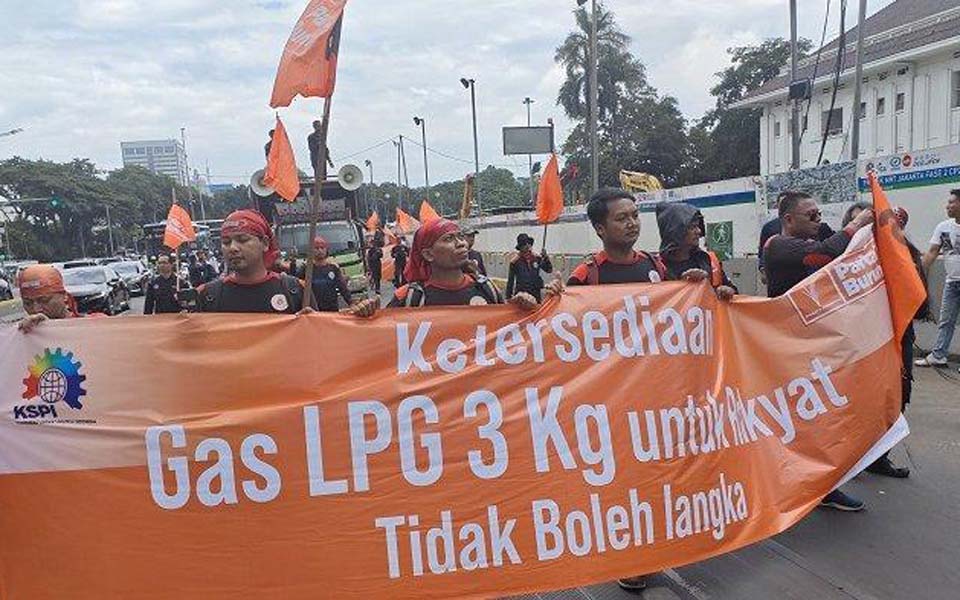Tens of thousands of workers from various different factory units, trade unions and labour confederations packed the streets in front of the State Palace in Central Jakarta on May 1 to declare the formation of a new labour party, although not all groups were united in this.
The protesting workers filled the parking area in front of the Palace where a command vehicle was parked with a stage and loudspeaker system upon which the workers took turns giving speeches.
Not coincidentally, the occupant of the Palace meanwhile, President Joko “Jokowi” Widodo, was conducting an official visit to Central Java.
Labour leaders from various trade unions gave speeches, the essence of which was their dissatisfaction with the behaviour of the established political party who treat workers as objects to garner votes at election time then after the elections, they pay no attention to workers’ misfortunes.
If workers could be mobilised though a political party, imagine how big the impact would be, said one of the labour leaders.
“There are at least 30 million or so workers in Indonesia, if you add family members, the numbers would be even greater than those who voted for Joko Widodo when he won the recent presidential election”, said Adi Wibowo from the United Indonesian Struggle (PPI).
However the planned declaration of a new labour party at the parking area in front of the State Palace was limited to discourse on the need to form a party.
On this Labour Day, the only group to confirm the formation of such a party was the Indonesian Labour Movement (GBI), which they see as a precursor to a future labour party. The GBI is an alliance of several movement groups, trade unions and labour confederations.
Some of the trade unions and labour movement groups have elected to pursue a different course of struggle and not join with the GBI. The reason for this, as stated by Suryanta Ginting from the Indonesian People’s United Resistance (PPRI), was that the current discourse on the formation of a labour party has raised a number of basic questions.
Ginting noted that the figures behind the idea have in fact been busy with various political maneuvers, both during the general and presidential elections last year as well as post the elections.
Ginting also said that this smacks of political power plays that are not based on a struggle for workers’ interests. Nevertheless, he said, he respected the rights of these groups.
[Translated by James Balowski for the Indoleft News Service. The original title of the report was Hari Buruh: Presiden Jokowi di Ngawi, buruh banjiri istana.]
Source: http://www.bbc.co.uk/indonesia/berita_indonesia/2015/05/150501_mayday_deklarasi















